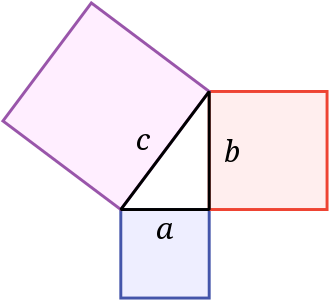Śrauta


Śrauta is a term that refers to a complex system of rituals and practices that are found in ancient Hinduism, rooted in the Vedas, the oldest sacred texts of Hinduism. The Śrauta rituals are elaborate ceremonies that require precise execution and are typically performed by specialized priests. These rituals are based on the Śrauta Sutras, which are texts that explain the rituals' procedures, passed down through oral tradition before being written down. The Śrauta system represents one of the most sophisticated ritualistic traditions in the world, emphasizing the performance of public sacrifices to ensure cosmic order and societal well-being.
Origins and Development[edit]
The origins of the Śrauta tradition can be traced back to the Vedic period, a time when the Vedas were composed, roughly between 1500 and 500 BCE. The Śrauta rituals are primarily derived from the Yajurveda, one of the four Vedas, which contains the mantras and formulas required for the sacrifices. Over centuries, these rituals became more complex, leading to the creation of the Śrauta Sutras, which are part of the Kalpa Vedanga, one of the six auxiliary disciplines of the Vedas that guide the ritual practice.
Key Features[edit]
Śrauta rituals are known for their complexity and the meticulous detail with which they must be performed. They involve multiple priests, each with a specific role, and can last for several days. The rituals include the kindling of sacred fires, the chanting of Vedic mantras, and the offering of various items such as milk, grains, and animals. The most significant Śrauta sacrifices are the Agnicayana, the building of the fire altar, and the Soma sacrifices, which involve the extraction, preparation, and offering of the Soma plant.
Social and Religious Significance[edit]
The Śrauta system played a crucial role in ancient Hindu society, serving not only religious purposes but also social and political functions. The performance of Śrauta sacrifices was a means for kings and wealthy patrons to demonstrate their piety, wealth, and power. These rituals also reinforced social hierarchies, as only certain castes were permitted to perform or sponsor the sacrifices. Despite their complexity, Śrauta rituals were seen as essential for maintaining dharma (cosmic order) and ensuring prosperity.
Decline and Revival[edit]
With the rise of Bhakti movement and other devotional practices in Hinduism, the prominence of Śrauta rituals began to decline in the medieval period. However, there has been a revival of interest in these ancient practices in recent years, with some communities in India continuing to perform Śrauta sacrifices according to traditional methods. This revival is often motivated by a desire to preserve cultural heritage and reconnect with ancient traditions.
Contemporary Relevance[edit]
Today, the Śrauta tradition is of interest to scholars of religion, anthropology, and history, as it offers insights into the religious practices and social structures of ancient India. While the number of communities actively practicing Śrauta rituals is small, these practices continue to be a significant part of India's intangible cultural heritage.
Ad. Transform your life with W8MD's Budget GLP-1 injections from $49.99


W8MD offers a medical weight loss program to lose weight in Philadelphia. Our physician-supervised medical weight loss provides:
- Weight loss injections in NYC (generic and brand names):
- Zepbound / Mounjaro, Wegovy / Ozempic, Saxenda
- Most insurances accepted or discounted self-pay rates. We will obtain insurance prior authorizations if needed.
- Generic GLP1 weight loss injections from $49.99 for the starting dose of Semaglutide and $65.00 for Tirzepatide.
- Also offer prescription weight loss medications including Phentermine, Qsymia, Diethylpropion, Contrave etc.
NYC weight loss doctor appointmentsNYC weight loss doctor appointments
Start your NYC weight loss journey today at our NYC medical weight loss and Philadelphia medical weight loss clinics.
- Call 718-946-5500 to lose weight in NYC or for medical weight loss in Philadelphia 215-676-2334.
- Tags:NYC medical weight loss, Philadelphia lose weight Zepbound NYC, Budget GLP1 weight loss injections, Wegovy Philadelphia, Wegovy NYC, Philadelphia medical weight loss, Brookly weight loss and Wegovy NYC
|
WikiMD's Wellness Encyclopedia |
| Let Food Be Thy Medicine Medicine Thy Food - Hippocrates |
Medical Disclaimer: WikiMD is not a substitute for professional medical advice. The information on WikiMD is provided as an information resource only, may be incorrect, outdated or misleading, and is not to be used or relied on for any diagnostic or treatment purposes. Please consult your health care provider before making any healthcare decisions or for guidance about a specific medical condition. WikiMD expressly disclaims responsibility, and shall have no liability, for any damages, loss, injury, or liability whatsoever suffered as a result of your reliance on the information contained in this site. By visiting this site you agree to the foregoing terms and conditions, which may from time to time be changed or supplemented by WikiMD. If you do not agree to the foregoing terms and conditions, you should not enter or use this site. See full disclaimer.
Credits:Most images are courtesy of Wikimedia commons, and templates, categories Wikipedia, licensed under CC BY SA or similar.
Translate this page: - East Asian
中文,
日本,
한국어,
South Asian
हिन्दी,
தமிழ்,
తెలుగు,
Urdu,
ಕನ್ನಡ,
Southeast Asian
Indonesian,
Vietnamese,
Thai,
မြန်မာဘာသာ,
বাংলা
European
español,
Deutsch,
français,
Greek,
português do Brasil,
polski,
română,
русский,
Nederlands,
norsk,
svenska,
suomi,
Italian
Middle Eastern & African
عربى,
Turkish,
Persian,
Hebrew,
Afrikaans,
isiZulu,
Kiswahili,
Other
Bulgarian,
Hungarian,
Czech,
Swedish,
മലയാളം,
मराठी,
ਪੰਜਾਬੀ,
ગુજરાતી,
Portuguese,
Ukrainian
